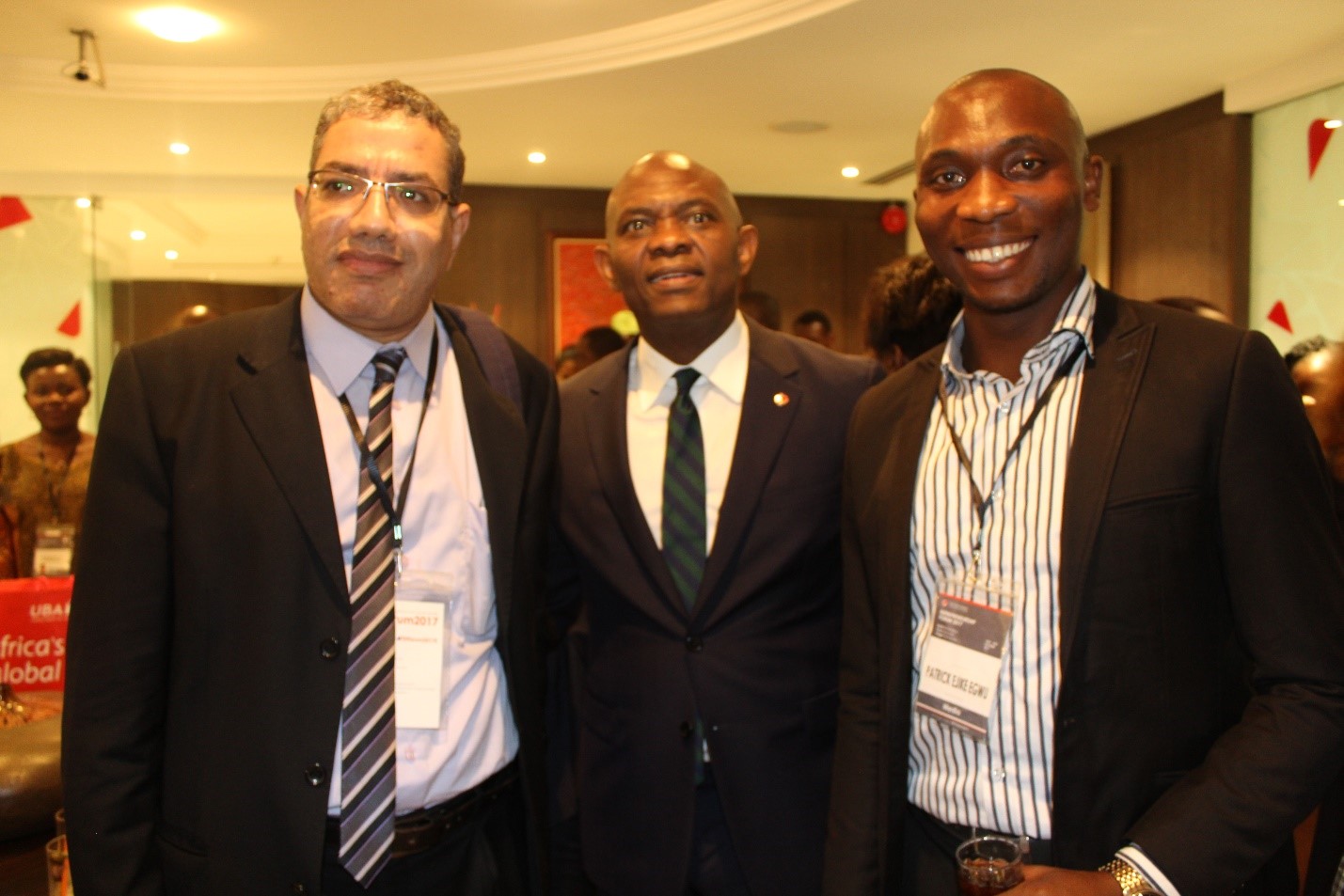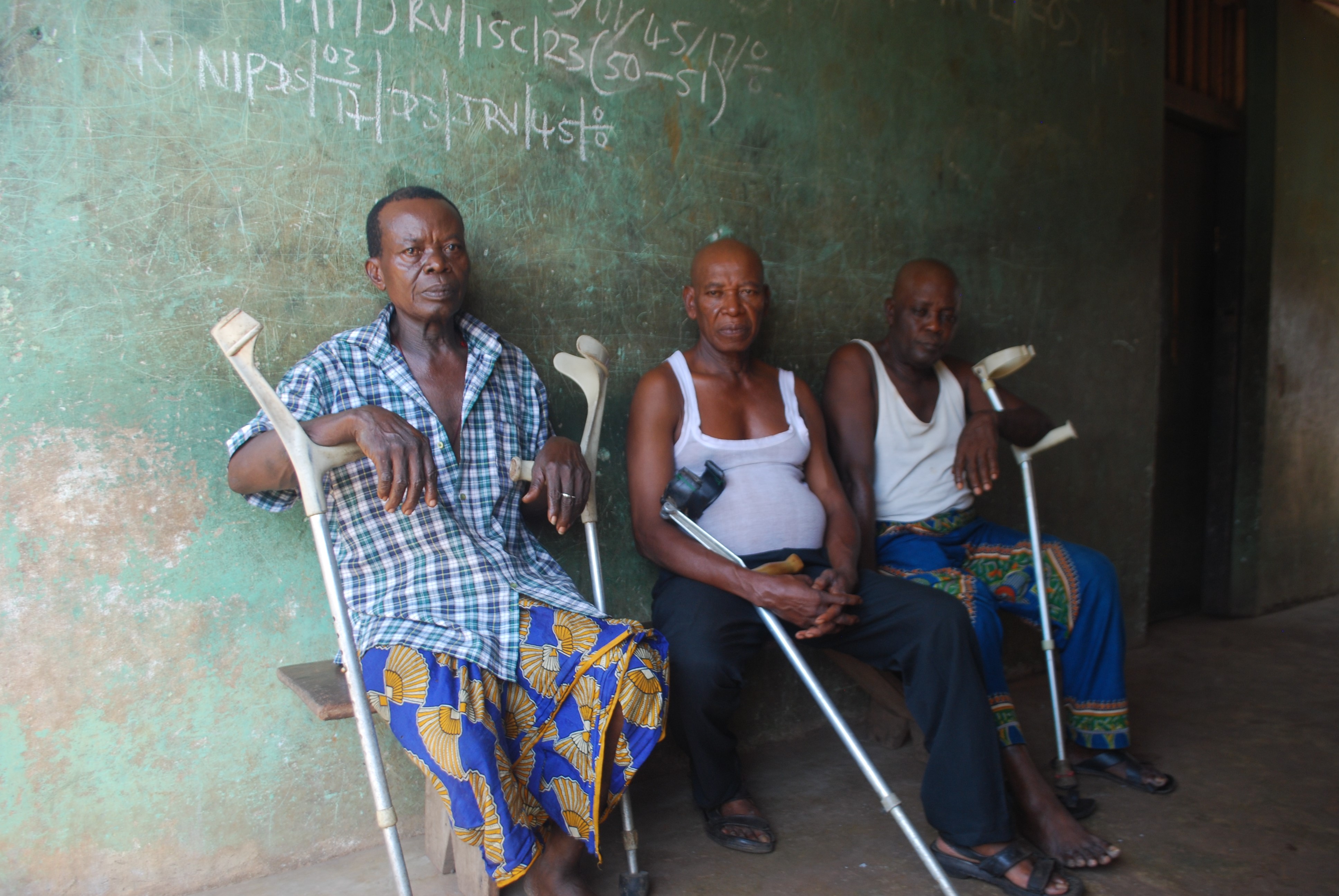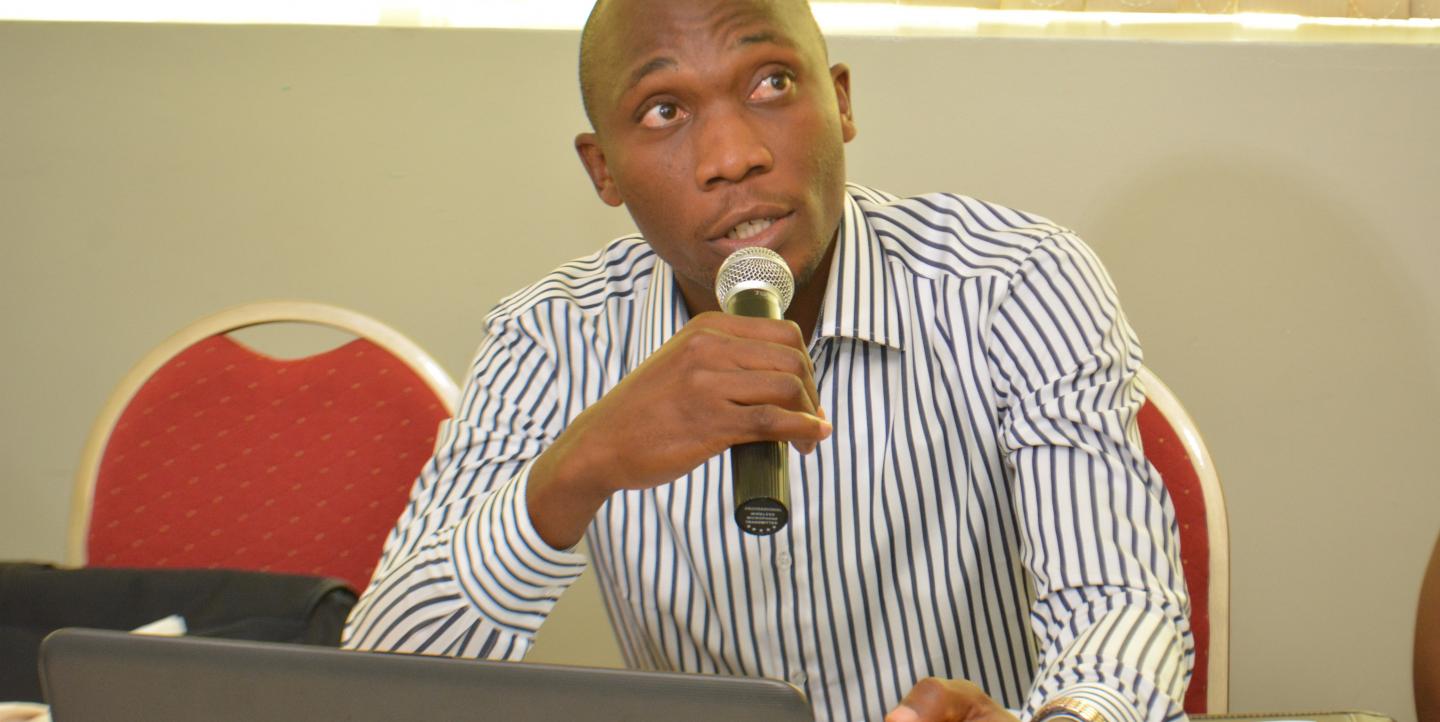Each month, IJNet features an international journalist who exemplifies the profession and has used the site to further his or her career. If you would like to be featured, click here.
Award-winning freelance journalist Patrick Egwu loves to read. From Nigerian authors like Chinua Achebe, Wole Soyinka and Chimamanda Adichie to journalists like Bob Woodward and Carl Bernstein, these writers influenced his decision to pursue a career in journalism.
When he was accepted into the School of Mass Communication at the University of Nigeria, Nsukka, everything changed. He contributed to campus publications and national dailies and interned at Radio Nigeria.
“From there, I fell in love with journalism,” he said.
Egwu, who was introduced to IJNet by a friend in 2014, said the site has helped advance his career as he works toward a master’s in journalism.
“I'm really grateful to the opportunities I've seen on IJNet. Every day when I wake up, I visit IJNet,” said Egwu. “It's more like my bible.”
In 2016, Egwu won second place in the Haller Prize for Development Journalism for a story on children’s access to technology in a refugee camp in northern Nigeria. He entered the same story for the Zimeo Excellence in Media awards, and won third place in the Ameenah Gurib-Fakim award for Science and Technology, both opportunities he found through IJNet. He was also selected to cover the Tony Elumelu Foundation entrepreneurship forum alongside 60 other journalists from African countries.
“[The Elumelu Foundation fellowship] was a great learning opportunity for me,” said Egwu. “I met, networked, interacted with and shared ideas with other journalists on the continent.”
As a freelance journalist, he reports for Orient Daily, Kenya-based BRIGHT Magazine, U.S.-based OZY, the Financial Times’ This is Africa, U.K.-based African Arguments and others. His work focuses on a variety of topics, but he’s most interested in health, conflict, education and development.
He is currently working on an investigation into inadequate health facilities for Lassa fever, which is supported by the International Center for Investigative Reporting and the MacArthur Foundation.
“I’m interested in these topics because they directly affect people,” he said. “These are topics that would make me take risks in telling the stories.”
IJNet spoke to Egwu about his work, IJNet’s influence on his career and advice he has for young journalists:
IJNet: What have been your favorite stories to cover?
Egwu: In particular, there are no favorite stories. All of them are my favorite. I put a lot of work, a lot of interest, a lot of passion into covering each story. However, some of my stories have moved me and focused on topics I was very passionate about.
 I traveled to the Zamfara state in northern Nigeria to investigate the allegation that officials are selling drugs meant to be given to meningitis patients free of charge. That was a story that really got to me because I spoke to parents of the deceased, parents who lost their children to meningitis because there was no vaccine available to them. The story really generated reactions in Nigeria. Some of the officials who were involved in that were actually prosecuted.
I traveled to the Zamfara state in northern Nigeria to investigate the allegation that officials are selling drugs meant to be given to meningitis patients free of charge. That was a story that really got to me because I spoke to parents of the deceased, parents who lost their children to meningitis because there was no vaccine available to them. The story really generated reactions in Nigeria. Some of the officials who were involved in that were actually prosecuted.
Another story I did that I really loved is the story on Biafran veterans who fought the Biafran war in Nigeria from 1967-1970. Many of them are disabled. They have been abandoned by the government — they are not taken care of — they are starving and they are begging. I was moved by their plight to go and do a story on them.
What are some challenges you encounter as a journalist in Nigeria?
One of the challenges I face in this profession is the challenge of getting documents or data to carry out an investigation. In 2011, Nigeria's former president Goodluck Jonathan signed the freedom of information act in Nigeria to make public information available to journalists. Despite this law, journalists are finding it difficult to get officials to release documents to them.
We are also poorly paid, like many journalists all over the world are poorly paid, but we are not complaining. We are doing our work, and officials in governments and in high places are harassing journalists because they don't want their secrets to be exposed to the public.
What is your advice to young or emerging journalists?
Journalism in itself is a taxing and very risky profession. My advice to budding journalists and students is that they shouldn’t give up on the profession if they really have the passion to tell stories — stories of disadvantaged and marginalized communities, giving voice to the voiceless in their communities.
They should get a mentor who is going to guide them and give them courage, and they should read books and apply for and visit IJNet all the time to find trainings, conferences or workshops.
Journalism is, in any part of the world, the key driver of society. So anybody that's going into journalism should know that. It's not an easy road to play in but [can be done] with dedication, with hard work and with commitment.
This interview has been edited and condensed for clarity.
Images courtesy of Patrick Egwu.


